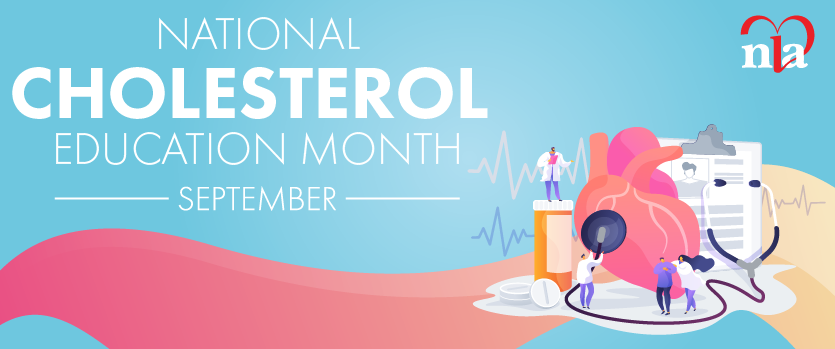Introduction
Chronic systemic inflammation is associated with the development of many chronic diseases, including metabolic syndrome, obesity, type 2 diabetes mellitus, and atherosclerotic cardiovascular disease (ASCVD). Because of this, an increasing number of clinicians are measuring inflammatory biomarkers in patients. The inflammatory biomarkers most commonly measured in clinical practice are C-reactive protein (CRP), which is an acute-phase protein, and interleukin-6 (IL-6) and tumor necrosis factor-alpha (TNF-α), which are proinflammatory cytokines.(1,2)
Nutrition is one of the most important lifestyle factors and it has the potential to have a significant impact on the inflammatory process. Strong evidence supports that cardioprotective dietary patterns, including the Dietary Approaches to Stop Hypertension (DASH) and Mediterranean-style dietary patterns, can promote anti-inflammatory effects. (3,4) Studies using evidence-based cardioprotective dietary patterns — or components of these dietary patterns — found an association with reductions in inflammatory biomarkers.(2,5,6) The antiinflammatory properties of these dietary patterns are attributed to the indirect consequences of metabolic improvements (i.e., weight reduction, triglyceride (TG)-lowering, non-high-density lipoprotein cholesterol/apolipoprotein B (non HDL-c/apoB)-lowering, glycemic improvements) and directly from the greater than 8,000 phytochemicals found in vegetables, fruits, beans, lentils, nuts, seeds and whole grains.(7) The DASH and Mediterraneanstyle dietary patterns are rich in lowglycemic-index foods. Studies suggest low-glycemic foods and specific nutrients in these dietary patterns have the potential to reduce inflammatory biomarkers independent of weight loss.(2,6)
Polyunsaturated Fatty Acids and Inflammation
The authors feel strongly that the evidence does not show an inflammatory reaction to high intake of n-6 PUFA’s as is commonly claimed. In a prospective cohort study, an increase in n-6 PUFAs intake did not lead humans to have increased proinflammatory cytokines such as CRP, IL-6 and soluble TNF receptors 1 and 2, and a high intake of both n-3 and n-6 PUFAs was associated with the lowest levels of inflammatory biomarkers.(8) Additionally, plasma n-6 PUFA concentration was inversely associated with the level of pro-inflammatory interleukin-1Ra and positively associated with the level of anti-inflammatory transforming growth factor-β.(9) Strong evidence supports that replacing saturated fatty acids (SFAs) with PUFAs is associated with a decreased risk of ASCVD(10) and is recommended as part of an overall cardioprotective dietary pattern.(3,4) Clinicians can feel confident when they educate patients on consuming foods rich in n-6 PUFAs in place of foods rich in SFAs. Plant-based foods rich in n-6 PUFAs include nuts, seeds and oils (e.g., safflower, soybean and sunflower) and can be part of a cardioprotective dietary pattern.

Fatty Fish, Fruits, Vegetables, Nuts, Turmeric and Cinnamon
Fatty fish (e.g., salmon, cod, halibut, tuna, anchovies, mackerel, and sardines) are good sources of n-3 fatty acids and are effective in lowering inflammatory biomarkers.(7) Fruits and vegetables are rich in many phytochemicals (e.g., anthocyanins, carotenoids, lycopene and lutein) and have been shown to reduce inflammatory biomarkers.(7,11) Conversely, a higher intake of red meat and processed meat was associated with an increase in inflammatory biomarkers.(12)
Nuts have been shown to reduce high sensitivity CRP (hs-CRP), IL-6 and fibrinogen and increase adiponectin. Dietary patterns high in nuts are associated with lower inflammatory biomarkers, such as intercellular adhesion molecule-1 (ICAM-1) and vascular cell adhesion molecules (VCAM). Nuts are also a good source of L-arginine content, a precursor of nitric oxide production.(7) Turmeric, cinnamon, red wine, and dark chocolate also have been found to exhibit antiinflammatory effects.(7) Clinicians should educate patients that dark chocolate, particularly some less pure forms, is high in calories and sugar, but can be included in small portions within an overall cardioprotective dietary pattern. In addition clinicians should always exercise extreme caution when discussing health benefits of any alcohol, since there is a very high prevalence of alcoholism and it should not be promoted for its health benefits.
Cardioprotective Dietary Patterns and Inflammation
Systematic reviews(2,5) and metaanalyses(6) on dietary patterns and their effect on inflammatory biomarkers have examined a “healthy” dietary pattern or a Mediterranean-style dietary pattern compared to Western-style or meatbased dietary patterns. The “healthy” and Mediterranean-style dietary patterns are similar in that they both have a high intake of fruits, vegetables, low-fat dairy products, whole grains, fish and lean poultry; however, the Mediterranean-style dietary pattern also is high in olive oil, lentils, legumes, and nuts. A Western-style dietary pattern has a high intake of red meats, processed meats, refined grains, high-fat dairy and other high-fat foods. Results of systematic reviews and metaanalyses suggested that the Western-style dietary patterns were associated with higher levels of inflammatory markers, while “healthy” and Mediterraneanstyle dietary patterns were associated with lower levels of CRP, IL-6 and TNF-α(2,5,6,13) Lower CRP was consistently and significantly associated with dietary patterns, especially the Mediterraneanstyle dietary pattern. 2,5,6) One systematic review (5) examined the association between dietary indices or scores vs. dietary patterns and found that, among 18 cross-sectional studies, 17 found statistically significant associations with the dietary scores (10 studies used the Mediterranean Diet Score or the Healthy Eating Index score) and inflammatory biomarkers.
Additionally, a small randomized crossover study of post-pubescent females with metabolic syndrome (n=60) found that following the DASH dietary pattern for 6 weeks resulted in a significant decrease in CRP.(14) Although there was not a significant interventional effect on serum TNF-α, IL-2, IL-6 or adiponectin, there was a trend to significant level of a group time interactions for IL-6. Strong evidence supports the cardioprotective and potential anti-inflammatory benefits of following a Mediterranean-style dietary pattern and DASH has the components of the “healthy” dietary pattern examined in multiple studies. These results also support the use of a dietary assessment tool to determine the potential for a patient’s dietary pattern to increase inflammatory biomarkers.

The Dietary Inflammatory Index and ASCVD Risk
The Dietary Inflammatory Index (DII) was developed to provide a tool that could assess the overall inflammatory potential of an individual’s dietary patterns.(15) Several studies have determined a direct association between the DII score and a high risk of ASCVD.(16-19) The DII assesses the impact of 45 food parameters on six inflammatory biomarkers (CRP, IL-4, IL-6, IL-10, IL-1β and TNF-α). Each dietary parameter was assigned a positive score (+1) if its effect was proinflammatory (significantly increased IL-1β, IL-6, TNF-α or CRP, or decreased IL-4 or IL-10), a negative score (-1) if its effect was anti-inflammatory, and 0 if it did not significantly change the biomarkers.(16) Thus, a higher DII score represents a proinflammatory diet and a lower DII score represents an anti-inflammatory diet. Two meta-analyses that examined using the DII to assess the risk of CVD determined that individuals consuming a pro-inflammatory diet had a 35%(17) to 36%(18) higher risk for CVD than those following an anti-inflammatory diet (Figures 1 and 2). Similarly, a meta-analysis by Zhong, et al.,(19) determined that pro-inflammatory diets — indicated by a higher DII — are independently associated with an increased risk of CVD and CVD mortality. Results from these studies suggest the DII may be a valuable tool in determining CVD risk.
Summary
Strong evidence suggests that diet plays an important role in inflammatory response, as reported by the impacts of DII on ACVD risk and mortality. Dietary patterns, such as DASH and the Mediterranean-style diet — with a high intake of fruit, vegetables, legumes, nuts, seeds, whole grains, nontropical plant-based oils and fatty fish — have the potential to reduce inflammatory markers in individuals.
Conclusion
A cardioprotective dietary pattern such as DASH or the Mediterranean-style diet is an evidence-based intervention for ASCVD prevention and management. Recent research results have indicated that dietary patterns can beneficially affect inflammatory biomarkers. Clinicians can have a “teaching moment” if they identify whether a patient is consuming a pro- vs. anti-inflammatory dietary pattern. Knowing this information would allow referral to a registered dietitian nutritionist (RDN) for medical nutrition therapy on following a personalized “healthy,” DASH or Mediterranean-style dietary pattern. A cardioprotective dietary pattern will benefit patients’ health as research continues to clarify the role of lifestyle therapies on systemic inflammation and ASCVD risk.
Authors’ note: The Dietary Inflammatory Index has been validated for use in a variety of populations and has been used in research. However, at this time, the Dietary Inflammatory Index is not considered an evidence-based assessment tool for the relationship between dietary intake and inflammation in clinical practice. Clinicians are encouraged to assess patients’ dietary intake compared to evidence-based cardioprotective dietary patterns and provide education and/or referral to a RDN for individualized medical nutrition therapy for following a cardioprotective dietary pattern.
Disclosure Statement: Dr. Lynott has no financial disclosures to report. Dr. Kirkpatrick has no financial disclosures to report. Dr. Sikand has no financial disclosures to report.






.jpg)
.png)













